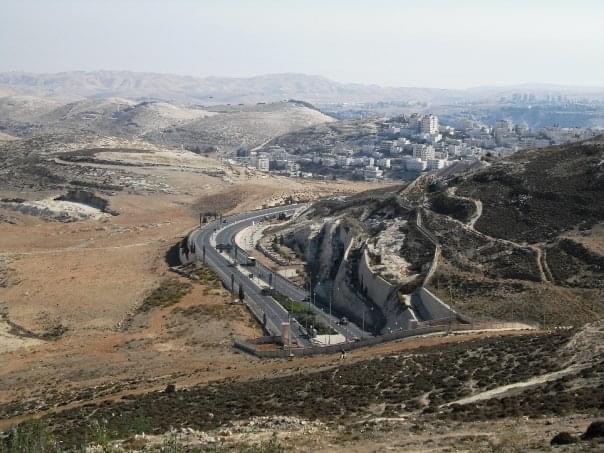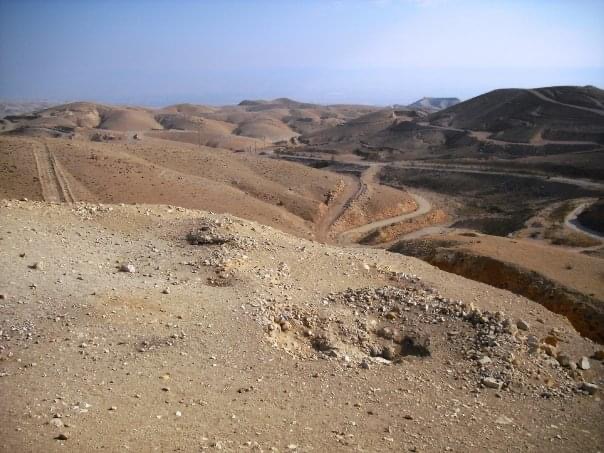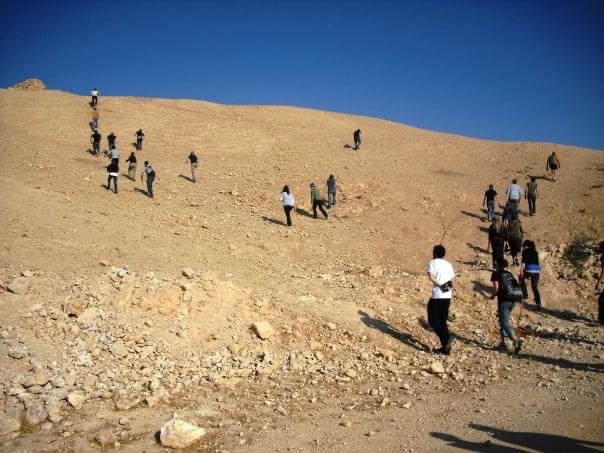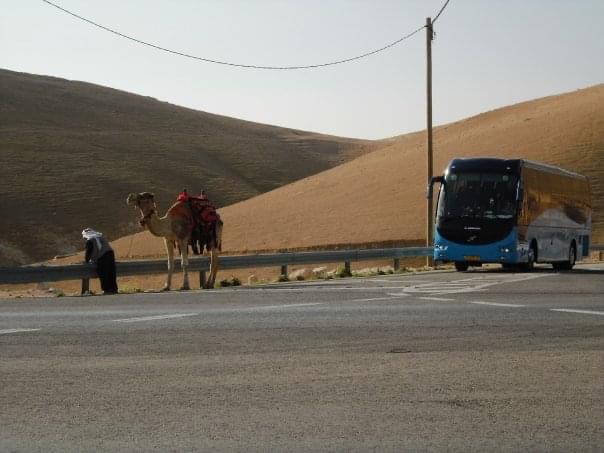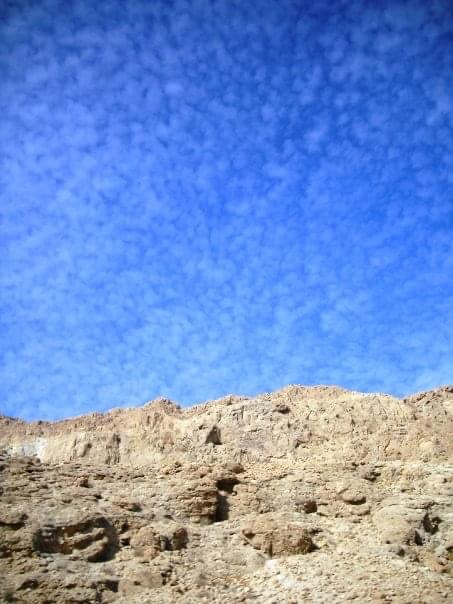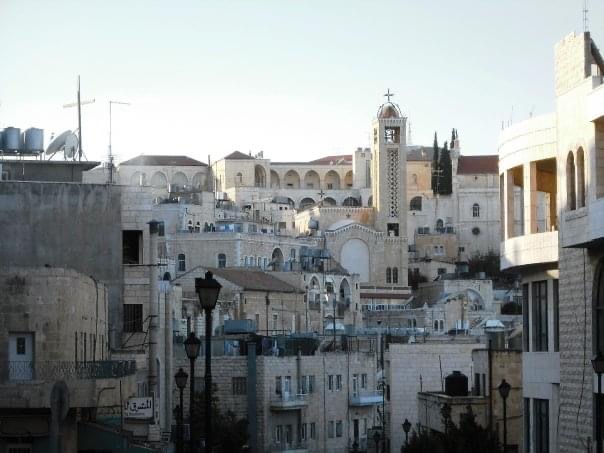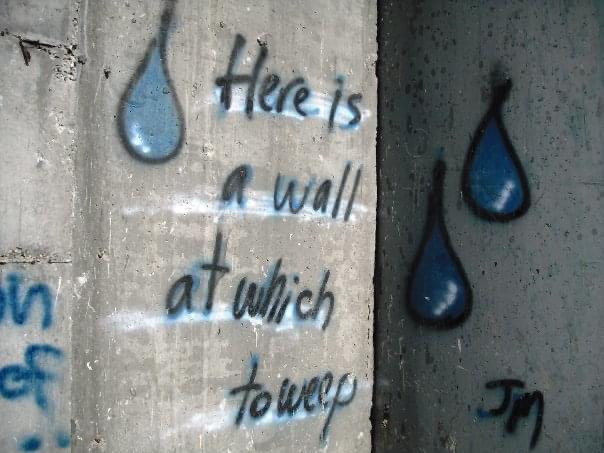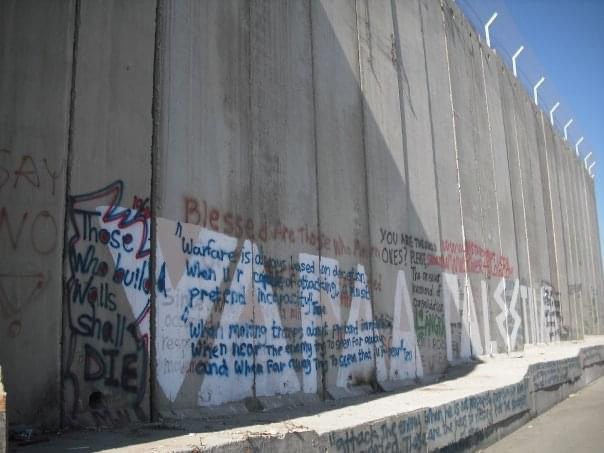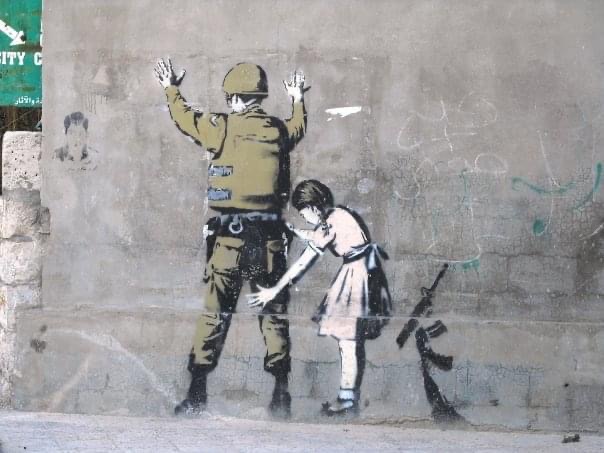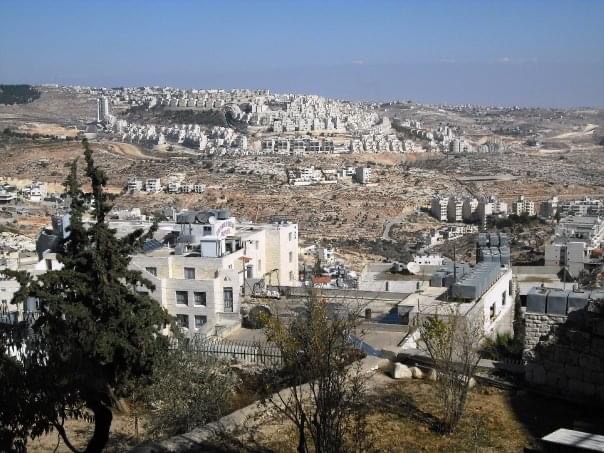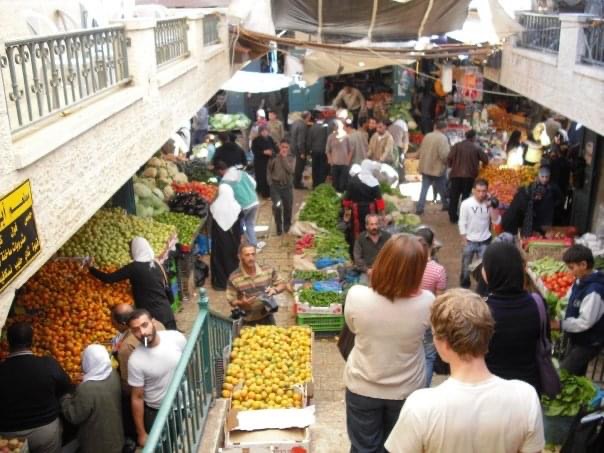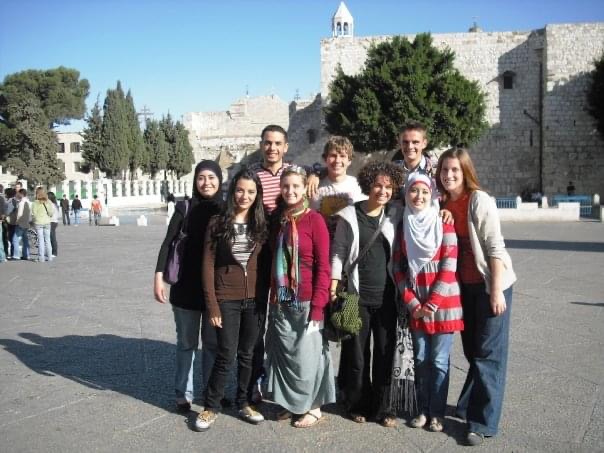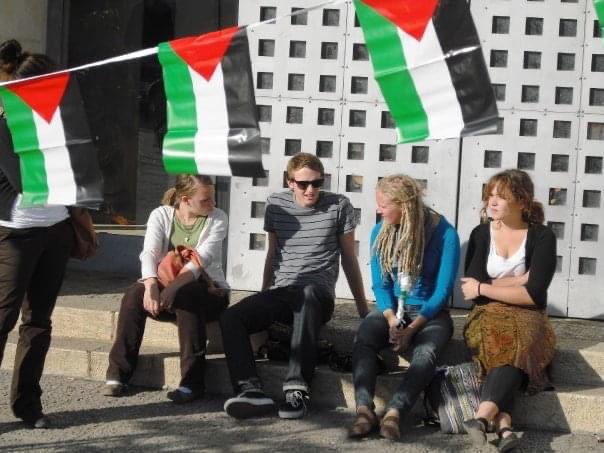
while staying in jerusalem as part of the middle east studies program (mesp) travel component, we drove out into the west bank east of jerusalem to look at some of the israeli settlements that are causing big problems for the peace negotiations between the israelis and the palestinians. the west bank and the gaza strip would form a palestinian state in a two state solution. but since the creation of israel, jews have been creating and enlarging settlements in the west bank, ostensibly so that when a two state solution is reached they will already be there and therefore have ownership of the land. now much of the settlement movement in the west bank is made up of religious fundamentalists, although interestingly initial zionism and the first settlements were very secular. because jerusalem is half “palestinian” and half “israeli,” the israeli government financially subsidizes jewish settlement in the “palestinian” half so that when an agreement is reached all of jerusalem will just have to go to israel. this is termed “creating facts on the ground.”
we heard from an amazing speaker, probably my favorite of the semester so far, named gershom gorenberg. he’s a haphazard guy who looks like he hasn’t shaven or showered in about ten years. he knows more about the settlement movement than probably anyone in the world (has written numerous of books) and he takes a very objective stance on the issue, despite being a very religious jew himself. we also heard from a hardcore advocate for the settlements which was also very informative in understanding their worldview. we went to the menachem begin museum (a former prime minister of israel who almost single-handedly kickstarted the modern israeli right back in the 1970s).
one day we went to bethlehem, and besides going to the church of the nativity which was very cool, we hung out for some hours with palestinian students from bethlehem university which was a great experience. our student hosts took us to “the wall” that separates palestine from israel proper. we saw some graffiti from a guy called banksy, who goes to charged places in the world and does controversial graffiti (but it really shouldn’t be controversial). the anonymous person that is banksy does this in secret. you know you have a public relations problem if you notice their work on your infrastructure some morning.
a line i’ll never forget – one of the palestinian students in bethlehem told us “we just don’t know what to do. if the most powerful people in the world can’t solve this problem, then what can we do about it?” they were really cool kids. there are significant injustices against the palestinians. there are also powerful political disincentives for israelis to give the palestinians their full rights right now – if things changed overnight things very well might totally fall apart. our director keeps telling us – and it has been a little annoying until now but it is starting to sink in – that we all are herd animals and we all would likely react similarly to how various tribes of people (israelis, palestinians) do if placed in the same circumstance. what is needed for peace is a little pragmatism, and no one would disagree, they’d just argue that pragmatism is less important than their homeland. i’m really enjoying learning about this conflict; there is something strangely interesting about a problem that seems impossible to solve – we don’t seem to have too many of those in the west.
